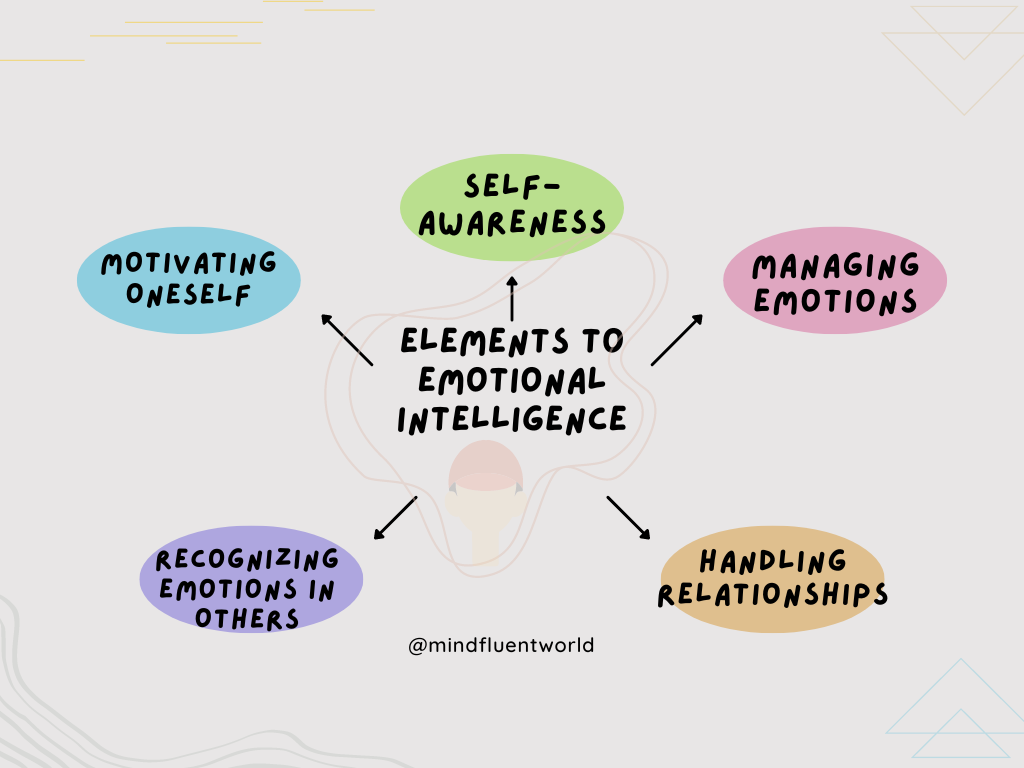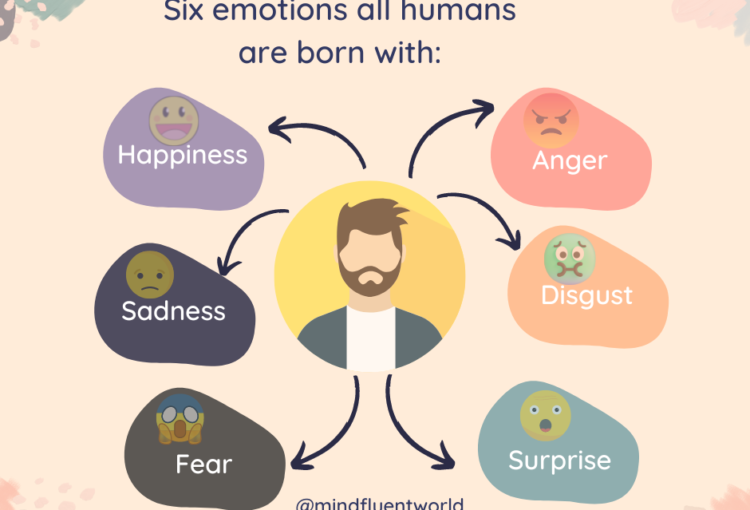
How important is the emotional intelligence in our life
What are emotions? Where do they come from? Why do we need them?
When talking about emotions, many confuse it with feelings which are two different but connected phenomena. Main difference is that feelings are experienced consciously and generate from our mental thoughts, while emotions are psychological state generated mainly subconsciously as sensations in the body. Feelings are influenced by our emotions, meaning that we can have emotions without having feelings, but we simply cannot have feelings without having emotions.
Emotions are involved in every action, decision and judgement we do during the day. People with emotional intelligence recognize this and use their thinking to manage their emotions rather than being managed by them. Emotions play a crucial role in our daily life including our behavior and overall well-being, influencing our perceptions, relationships, behavior, and the choices we make at any given time. They help us survive by providing an efficient, automatic way of responding rapidly to important situations avoiding danger and succeed in life.
Emotions help us to communicate with others. When we are happy, or sad we need someone to share good or bad situations. Kendra Cherry, Psychology Expert, outlined five main purposes of emotions: they help us to take action, to survive, strike and avoid danger, to make decisions, to understand others. Moreover, emotions help us understand other people but also allow others to understand our inner world. Psychologist Paul Ekman established there are six universal emotions: Happiness, Sadness, Fear, Disgust, Anger and Surprise

What is emotional intelligence?
Emotional intelligence in the other side, is the ability to perceive, control and evaluate emotions, or the quality that enables us to confront with patience, problems that we face in affective relationship with ourselves and with others. The term emotional intelligence was created by two researchers, Peter Salovey and John Mayer in early `90 of the last century, and found popularity a few years later through Daniel Goleman’s book called Emotional Intelligence. Goleman states that there are 5 elements to emotional intelligence: Self-Awareness; Managing Emotions; Motivating Oneself; Recognizing Emotions in Others and Handling Relationships.
We are prone to think that the level of IQ (Intelligence Quotient), is the main factor that determines success, but Goleman’s research concluded that in the modern world the EQ (Emotional Intelligence) is just as, if not more important factor to succeed in life. This is why sometimes we see a clever person doing a mess, or someone who acquired a fortune but it is restless and sad, a boss who is always right and blaming others or a co-worker who tend to dominate the conversation. Those people that are not able to understand and control their emotions or those of others, could be qualified as low emotional intelligent. Salovey and Mayer defined also that having low emotional intelligence can negatively impact not only your interpersonal relationships but also your mental and physical health. On the other side, emotionally intelligent people can use their understanding of their emotions and the emotions of others to move toward personal and social growth.
Emotional intelligence can be learned
Kids, teachers and leaders need support and education to develop their emotional intelligence through programs aimed at developing emotional intelligence need to target dimensions of self-awareness, self-regulation, awareness of others, and regulation of others. We live in the age of Artificial Intelligence, which somehow creates dependence on foreign intelligence and thus eclipses emotional intelligence even more. Therefore, emotional skills should be taught to children at an early stage, they should start having an awareness that emotional intelligence will play the most important part of their life, and lead them towards success. This dictates the need that perhaps most of the curricula of the existing teaching programs in schools, should change and adjust to the needs of the pupils and students, if we are to make sense of the new reality that surrounds them and all of us.
Benefits of improving emotional intelligence
Emotional intelligence plays an important role in our life in many aspects. It has been observed that people with higher emotional intelligence empathize with others, communicate effectively, perform better at work in managing themselves and their relationships and have greater satisfaction on account of enhanced productivity at the workplace. Emotional Intelligence becomes central when dealing with stressful situations like conflict, change, and other complex situations or problems. During these times, it’s critical to remember to practice kindness, and being able to manage emotions.
There is a range of benefits toward improving the emotional intelligence, as the authors (Higgs et al) list in their new book: Leading with Emotional Intelligence: Effective Change Implementation in Today’s Complex Context. The list include: improved leadership; more effective handling and resolution of disputes; more effective development of team working; improved negotiations; more cost-effective decision-making; and better quality problem-solving and decision-making. Namely, Emotional Intelligence enables an individual not only to perform well in the workplace, but also in accomplishing various other goals and objectives in his or her life.
In order to improve your emotional intelligence skills, you must identify your emotions first, recognize your feelings and take the moment to navigate social situations. As Justin Bariso, who is an emotional intelligence expert, states: the key to strengthening your emotional intelligence is first to identify your personal traits and tendencies and then to develop strategies to maximize your strengths and minimize your weaknesses.
Therefore, we can conclude that emotional intelligence is a learned skill that can influence our social interaction and building stronger relationships with others, help us be more successful at school or work, achieving personal goals and above all, it becomes a gateway to a balanced life.
©Mindfluent

